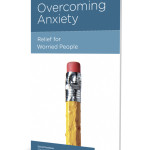It is common to wonder about the role of sermons in the lives of everyday Christians. Why do pastors spend so much time preparing a weekly sermon? Wouldn’t it be better if he spent more time in meetings with teams of leaders, counseling the hurting, building relationships with visitors, or discipling young believers? Of course, those are all key aspects of pastoral ministry. However, every Christian should recognize the role of preaching in their lives. Further, they should devote themselves to listening to biblical preaching. Even though we live in an age with multimillion-dollar action movies and TED talks, the weekly sermon in an local church is key to the spiritual growth of everyday Christians. Ordinary believers need to understand the Sunday sermon is grounded in a deep theology of the Word of God. Further, listening to sermons is essential for our spiritual growth. The church also needs a revival in our understanding of preaching as an avenue of grace. Spiritual maturity is linked to our ability to soak up a faithful sermon. Finally, the COVID-19 pandemic highlighted the role of the sermon in our corporate worship as a needed reminder of the gospel.
2 Timothy 3:16 teaches, “All Scripture is breathed out by God.” This phrase means God’s Word comes from inside of him. This truth is the ground for the biblical doctrine of inerrancy. The New Hampshire Confession of Faith (1833) is the origin of the Baptist Faith and Message 1925, 1963, and 2000. All four documents explain the Bible is truth “without any mixture of error.” The reason his Word cannot be mixed with any untruth is that only truth is found inside God. The Bible, therefore, is truth.
2 Timothy 3:16 builds on this idea to explain that because Scripture is from inside God and thus truthful it is “profitable for teaching, for reproof, for correction, and for training in righteousness.” As truth “without any mixture of error” the Bible is useful. Specifically, the Bible is beneficial for teaching, reproof, correction, and training in righteousness. God provides his Word for us to learn doctrine. We need to know it theoretically in order to apply it practically. Speculation leads to application. His Word is how God chooses to reprove or convict. We perceive our sin as sin through Scripture convicting us. Therefore, the Bible corrects or makes straight what was crooked. It shows us the way we should go. As a result, it trains, educates, and disciplines us to live according to God’s way. The pathway to righteousness is through the Bible. The end result is that the Bible equips us “for every good work” (2 Timothy 3:17).
If the Bible comes from inside God and is thus truthful and useful to equip us for good works, then what should we do with it? 2 Timothy 4:2 says we are to “preach the word.” We are to proclaim or herald the good news of the Bible. It is truth and it teaches us how to live faithfully. We should urgently tell the world what it teaches. People need to know, therefore the church has a mission to “preach the word.”







